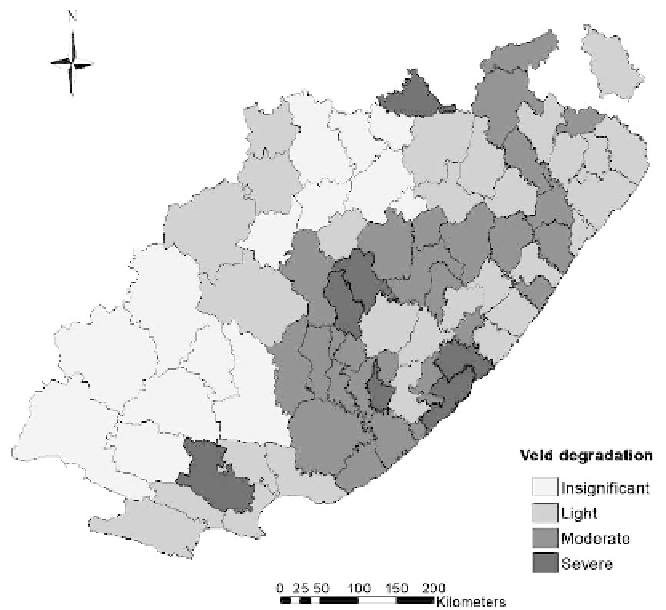Agriculture Reference
In-Depth Information
Figure 10.1. Land degradation in the Eastern Cape Province Eastern Cape State of the environment report
(CSIR, 2004).
Traditional and customary institutions
The assumption of these institutions is that existing local rules and regulations could
be important instruments for the management and development of rangelands once
appropriate legal and institutional frameworks are provided to communities (Nothard
et
al.
, 2005). The common feature of these institutions is that rural communities have full
control over their resources and continue to use traditional mechanisms and rules to define
access and resource use by all community members.
The role of traditional institutions is to provide rules and regulations on how the resources
should be utilized (Tshabalala, 1995). Those in charge, such as the chief and the headmen,
are responsible for issues like land allocation and grazing control. However, traditional
institutions differ with communities. For example, Timothy (1998) indicated that
rangelands in Ethiopia traditionally belong to a clan. This system of ownership allows
the community to work together in conserving resources within their rangelands thereby
reducing the risk associated with overstocking. Each clan or sub-clan has its traditional

Search WWH ::

Custom Search